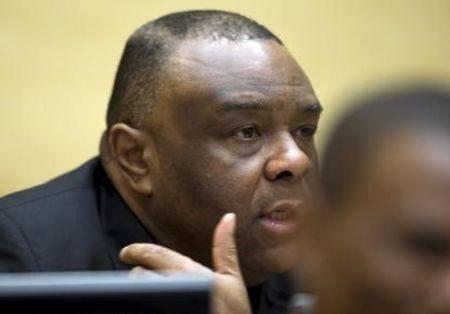Advertisement
Congolese is highest-ranking politician set for Hague court verdict
AMSTERDAM (Reuters) - A former Congolese vice-president becomes the most senior political leader ever to face judgment before the International Criminal Court on Monday, when judges rule on whether he committed war crimes in the Central African Republic (CAR).
Jean-Pierre Bemba, a wealthy businessman whose Movement for the Liberation of Congo (MLC) militia and political party vied for dominance in the Democratic Republic of Congo in the early 2000s, is charged with ordering rape and murder.
If acquitted, Bemba, an old rival of Congolese president Joseph Kabila, could return to political life in the war-torn country which has for decades been ravaged by militias fighting over its mineral wealth.
The charges - two of crimes against humanity and three of war crimes - stem from his militia's intervention on the side of CAR's then-president Ange-Felix Patasse in the neighbouring country's civil war. Bemba denies the charges.
In the court's prison, in The Hague's seaside suburb of Scheveningen, he rubs shoulders with suspects including former Ivorian president Laurent Gbagbo and fellow Congolese Germain Katanga, who is appealing his war crimes conviction.
The ICC's prosecutors say Bemba knew, or should have known that his MLC soldiers were committing crimes. During the five-year trial, 40 witnesses testified. One described being raped by two MLC soldiers. She was later diagnosed with HIV/AIDS.
Bemba's lawyers say he had no control over the MLC's campaign in CAR, during which they claim its soldiers were fully under Patasse's command.
His arrest in 2008 came as a surprise both to Bemba and his supporters and opponents at home. He had been living in semi-exile in Europe for several years when prosecutors sprung a trap by issuing an arrest warrant during a visit to Belgium, Congo's former colonial master.
Like most fellow inmates in the comfortable detention centre, he has devoted the years of his trial to hobbies, entertaining his lawyers with impromptu piano renditions of Abba's hit 'Waterloo', in a nod to the town near Brussels where he was arrested.
The trial began in 2010 but was delayed when, three years in, prosecutors claimed to have uncovered evidence of a conspiracy by Bemba and his lawyer to fabricate exonerating evidence. Five people, including Bemba, were charged in the resulting witness tampering case, which continues.
(Additional reporting Aaron Ross in Kinshasa; Editing by Stephen Powell)



















Add new comment